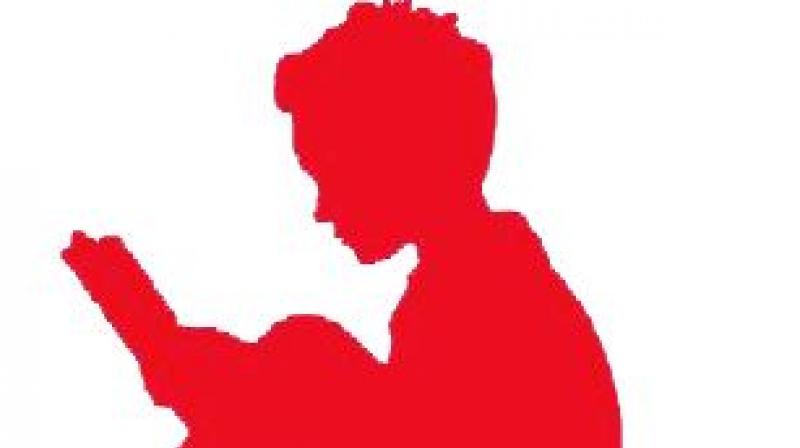India has 35 per cent of world's illiterate, says Unesco
In Telangana, 34 per cent of the population still can't read.

Hyderabad: The UNESCO Global Education Monitoring report released on Monday has painted a grim picture of Indian education.
The report states that 35 per cent of the world’s illiterate population lives in India; that means that if India improves its education scenario, it could change the global educational scenario significantly.
Around 34 per cent of the population of Telangana is still illiterate. District educational officers say that the problem can be combated only if equal education is provided to all, including adults. With more adults who cannot read and write, the literacy rate of the state is taking a hit.
B. Sudhakar, director of Adult Education, says, “We have over 8,000 adult education centres in gram panchayats that offer classes mostly in the morning.
“However, understanding that it is difficult for many to attend in the day time, we have also begun classes in the evening and have started employing women instructors so that women from rural areas feel more comfortable attending the classes.”
A test is conducted every six months which the student has to pass to be counted as a literate citizen, but most of the adult students shy away from giving the exam. “We also have dropouts in adult education because of lack of support, and stigma, which should stop. It is never too late to learn,” Mr Sudhakar said.
Adult literacy is important because “only by educating parents can we ensure that they will encourage their children to study further,” says Professor Narayana Rao, an educational expert.
“There is a difference in the attitude of parents who have begun attending adult education centres. They no longer believe that their ward’s education is unnecessary.” He says that the attendance at night classes should be higher.
“The main reason why adults do not enrol is because they do not want to lose their daily wages. We should encourage migrant workers in the scheme,” says Prof Rao.
School dropout difficult to curb
More than 12 million children in India are not enrolled in schools. Efforts are directed towards ensuring that children stay in school at least till the age of 12, but the statistics show that many children do not even complete their lower secondary education.
The biometric system of attendance, which was proposed to be implemented in schools, has been criticised by the teachers’ associations.
District education officers claim they are doing their best to enrol children in schools. “We keep raising awareness regarding education in the rural areas but parents still hesitate to send their children. The gender bias can also be clearly seen as more boys are sent to school. Although there is an improvement in TS, we still have to go a long way to ensure that every child is educated,” said an educational officer.
In his opinion, children below the age of 14 should not be employed at construction sites. The child should instead go to school. “Child labour and education is intrinsically connected. Education should always come first,” he said.
Kishan Kumar, the principal of a government school in LB Nagar frankly admits that, “The problem is the state of government schools. People need to have faith in the schools. Many schools need to update their infrastructure and begin regular classes for students to feel motivated. The Centre’s idea of forming associations of successful alumni from government schools should be implemented soon so that examples are set.”
The UNESCO report has identified another marker for the poor education figures and has called for ‘better regulation of private tutoring.’
Increased private tutoring is widening the education gap. Deepthi Divakar, a high school teacher says, “It is alarming how many students attend private tuitions, which basically repeat what is taught in schools.” Students have become lax in school knowing that they can learn the portion through private tutoring." Since private tutoring is more expensive, only better off students can afford it, giving them an unfair advantage.

